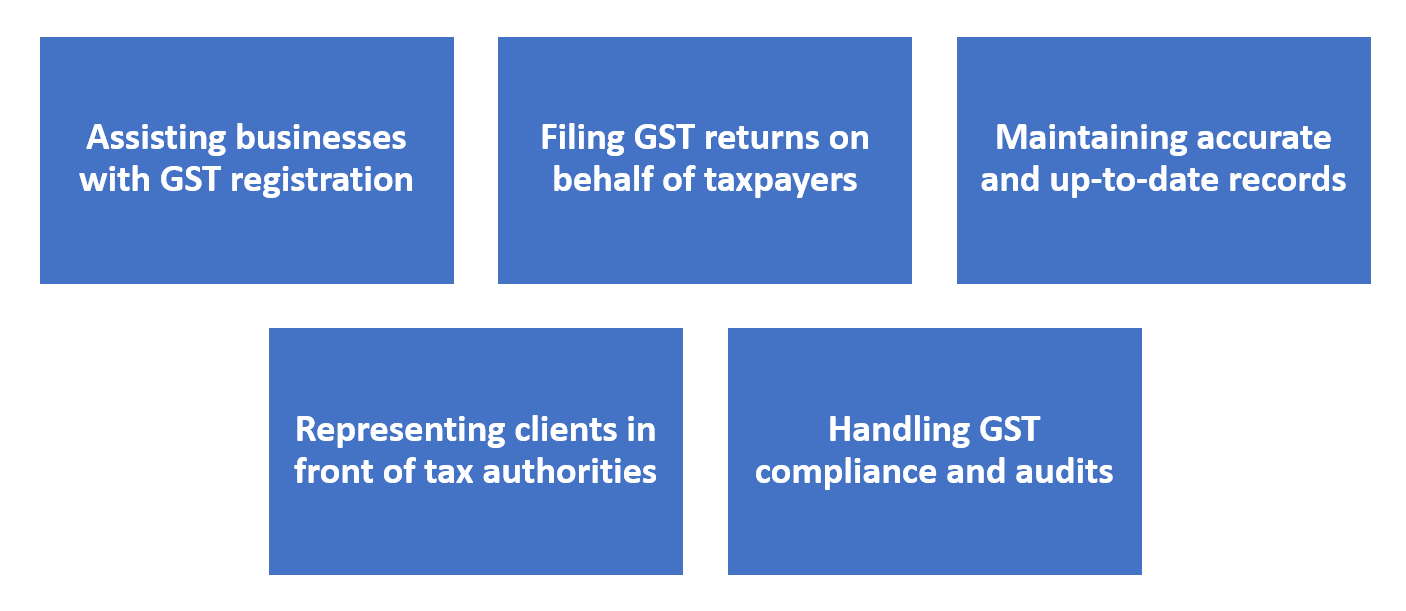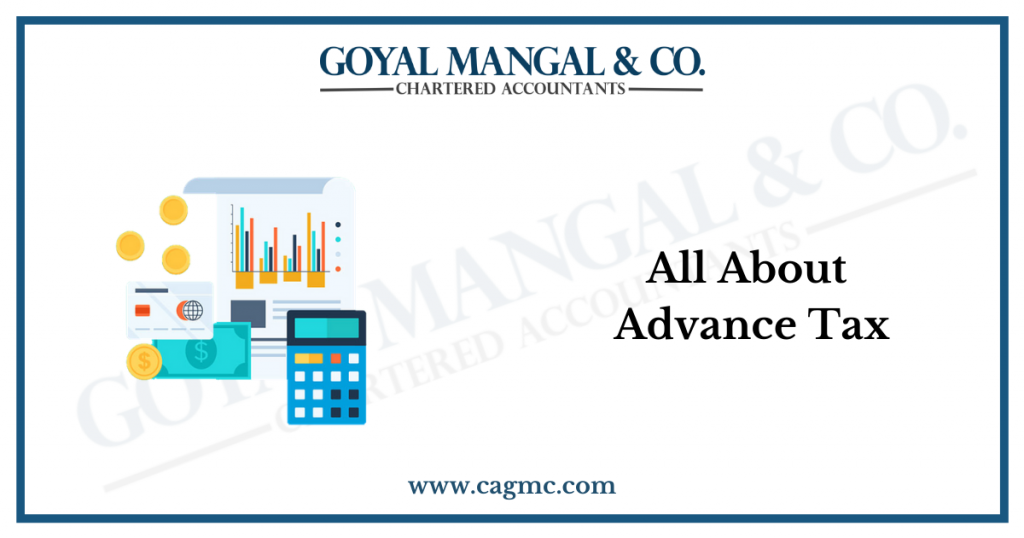
As the Goods and Services Tax (GST) continues to be a vital part of the modern tax system, the role of GST Practitioners has become increasingly essential for businesses and taxpayers alike. These skilled professionals play a crucial role in simplifying the complexities of GST compliance and ensuring smooth tax operations. Whether you’re a tax enthusiast looking to pursue a career as a GST Practitioner or a business owner seeking expert assistance, understanding the enrollment process is key to leveraging the benefits of GST compliance.
| Table of Content |
Definition and Role of a GST Practitioner
A GST Practitioner is a professional authorized to assist taxpayers in matters related to the Goods and Services Tax (GST) system. Their role involves providing advice, filing GST returns, and managing compliance for businesses. They act as intermediaries between taxpayers and the tax authorities, ensuring accurate and timely submission of GST-related documents and resolving any issues that may arise. Roles of GST Practitioner is a crucial in easing the tax compliance burden on businesses and ensuring they adhere to GST regulations, ultimately contributing to a more efficient and streamlined indirect tax system.
Eligibility criteria for becoming a GST Practitioner
The eligibility criteria for becoming a GST Practitioner in India are as follows:
- Educational Qualifications: The individual must have one of the following qualifications: a) a Graduate or Postgraduate degree in Commerce, Law, Banking, Business Administration, or Business Management from a recognized university, or b) a Degree examination of any recognized Foreign University, equivalent to the above qualifications.
- Professional Qualifications: The individual should be a member of any of the following professional bodies: a) Institute of Chartered Accountants of India (ICAI) b) Institute of Cost Accountants of India (ICAI) c) Institute of Company Secretaries of India (ICSI)
- Work Experience: There is no specific work experience requirement to become a GST Practitioner.
- Other Eligibility Requirements: The applicant should not have been convicted of any offence under the GST Act or any other tax law, and should not have been found guilty of any misconduct by any professional body. Top of Form
Online Registration Procedure and Documents Required
The online registration procedure for becoming a GST Practitioner in India involves the following steps:
Step 1: Visit the official GST portal at www.gst.gov.in.
Step 2: Click on the “Services” tab and select “Registration,” then choose “New Registration.”
Step 3: Select “GST Practitioner” as the type of registration.
Step 4: Fill in the necessary details, including PAN, email address, and mobile number. You will receive an OTP (One-Time Password) on the provided mobile number and email for verification.
Step 5: After verification, you will receive a Temporary Reference Number (TRN) on your registered mobile and email.
Step 6: Return to the GST portal, click on “Services,” and select “Registration” again.
Step 7: Choose “New Registration” and then “Temporary Reference Number (TRN).”
Step 8: Enter the TRN and the captcha code, then click on “Proceed.”
Step 9: Complete the GST Practitioner registration form by providing the required details, including educational and professional qualifications.
Step 10: Upload the necessary documents, such as educational certificates, professional membership documents, and a passport-sized photograph.
Step 11: After applying, you will receive an Application Reference Number (ARN) on your registered mobile and email.
Documents Required:
- Passport-sized photograph
- PAN card
- Aadhaar card
- Proof of educational qualifications (certificate or mark sheets)
- Membership certificate from ICAI, ICMAI, or ICSI
- Bank account details (cancelled cheque or bank statement)
- Address proof (Aadhaar card, passport, voter ID, or utility bill)
Responsibilities of GST Practitioners:

- Assisting businesses with GST registration: One of the primary responsibilities of GST Practitioners is to guide businesses through the GST registration process. They help enterprises understand the registration requirements, gather the necessary documents, and ensure the seamless completion of the registration procedure. By assisting businesses in obtaining their GST identification number (GSTIN), Practitioners play a crucial role in ensuring compliance right from the start.
- Filing GST returns on behalf of taxpayers: GST Practitioners shoulder the responsibility of preparing and filing GST returns on behalf of their clients. This involves accurately computing the tax liability, input tax credits, and other related details for the relevant tax period. Timely and accurate filing of returns is critical to avoid penalties and maintain a good compliance record.
- Maintaining accurate and up-to-date records: GST compliance requires meticulous record-keeping. GST Practitioners are responsible for maintaining accurate and up-to-date records of their client’s financial transactions, invoices, and GST-related documents. These records serve as a basis for GST return preparation and may also be subject to scrutiny during audits.
- Representing clients in front of tax authorities: In the event of any GST-related disputes, audits, or investigations, GST Practitioners act as representatives for their clients. They liaise with tax authorities on behalf of the businesses they serve, providing necessary documentation and explanations to resolve issues and ensure a smooth process.
- Handling GST compliance and audits: GST compliance goes beyond just filing returns. GST Practitioners continually monitor their clients’ transactions and business activities to ensure adherence to GST regulations. They conduct periodic internal audits to identify and rectify potential compliance gaps, minimizing the risk of penalties and other legal repercussions.
In summary, GST Practitioners play a vital role in assisting businesses with their GST-related obligations. From initial registration to return filing, record-keeping, representation, and compliance management, their expertise ensures that businesses stay compliant with GST laws and regulations.
Code of Conduct for GST Practitioners:
- Understanding the ethical responsibilities: GST Practitioners are expected to uphold the highest ethical standards in their professional conduct. This includes acting with integrity, honesty, and objectivity while serving their clients. They must prioritize the best interests of their clients and avoid any actions that could compromise their independence or professional judgment.
- Maintaining client confidentiality and trust: Client confidentiality is paramount for GST Practitioners. They must safeguard all confidential information obtained during the course of their engagements. Maintaining client trust and confidentiality is crucial in building long-term relationships and ensuring that clients feel comfortable disclosing sensitive financial and business details.
- Avoiding conflicts of interest and transparency: GST Practitioners should avoid any situations that may lead to conflicts of interest with their clients. If any potential conflict arises, it must be disclosed to the affected parties, and appropriate steps should be taken to address the situation objectively and fairly. Transparency in all dealings is essential to establish trust and credibility in the eyes of clients and regulatory authorities.
- Consequences of non-compliance with the code of conduct: GST Practitioners should be aware of the repercussions of failing to adhere to the code of conduct. Non-compliance may lead to disciplinary action, including penalties, fines, or even suspension of their GST Practitioner status. Staying compliant with the code ensures the reputation and professionalism of GST Practitioners remain intact.
GST Updates and Continuing Professional Development:
- Staying informed about changes in GST laws and regulations: As the GST framework evolves, GST Practitioners must stay up-to-date with the latest changes in laws, rules, and regulations. Keeping abreast of amendments and updates is crucial to providing accurate advice and assistance to clients and ensuring compliance with the current GST requirements.
- Importance of continuous learning and professional development: Continuous learning is a key aspect of being a successful GST Practitioner. Engaging in ongoing professional development activities helps enhance knowledge, sharpen skills, and stay ahead of industry trends. By investing in their knowledge and expertise, GST Practitioners can provide better services and guidance to their clients.
- Resources and platforms for GST updates and education: Numerous resources and platforms are available for GST Practitioners to access relevant updates and educational materials. These may include official government websites, industry publications, webinars, seminars, and training programs. Utilizing these resources helps GST Practitioners remain well-informed and continuously improve their proficiency in GST matters.
Conclusion
In conclusion, a GST Practitioner is a vital professional authorized to assist taxpayers in India with Goods and Services Tax (GST) compliance. They play a crucial role in easing the burden of tax compliance for businesses, ensuring accurate GST returns, and resolving any related issues. To become a GST Practitioner, individuals need to meet specific eligibility criteria, including educational qualifications in commerce, law, or business management, as well as membership in professional bodies like ICAI, ICMAI, or ICSI. The online registration process involves submitting essential documents, and it is essential to stay updated with the latest requirements from the official GST portal or relevant authorities.


